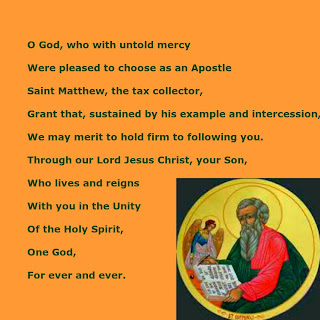…but how can a man be justified before God? Should one wish to contend with him, he could not answer him once in a thousand times.
God is wise in heart and mighty in strength; who has withstood him and remained unscathed?
The Book of Job is steeped in reverence for God. The Divine Author has struggled to comprehend God’s sovereign goodness even from the depths of human misery. He is profoundly confused -- as we all are -- by God’s apparent indifference in the face of anguish. On the one hand, he knows that God’s majesty, which is far beyond human comprehension, renders every human question moot. To ask Why? is to risk sacrilege. But he is compelled nonetheless by his pain to ask for, even to demand, an answer.
Job, as ancient literature of the highest order, retains its fascination even in a post-Christian world. But many of today's readers have little experience and little consciousness of the sacred. Words like holy, reverent, pious, and devotion mean little to them; and they blow off blasphemy, anathema, and sacrilege. Even common words like bless and curse have little resonance. But, as they read Job, they feel the import of his question, “Why do the innocent suffer?”
Occasionally I raise a question with Veterans in recovery: “Is anything sacred?”
One fellow immediately declared, “Nothing is sacred!” But when I asked, “Not even the American flag?” he allowed one exception. The question might be rephrased, “What is more important than me? What is worth sacrifices of time, energy, talent, friendship, or my life?”
A sense of the sacred is like the senses of taste and smell. It must be cultivated. Sometimes, when I eat something I have never tried before, I don’t taste anything. Likewise, I have drank very expensive tea that was wasted on me. It seemed to have no flavor. However, with further experience, I learned to taste these exotic foods and to enjoy them. I notice, too, that I should hear a piece of classical music several times before I feel its enchantment.
Likewise, we must cultivate reverence, piety, or the sacred. It is natural but it doesn’t come naturally. It is peculiarly human, and a world of many human cultures have as many ways to sense, express, and celebrate the sacred. Catholics have a deep reverence for the Blessed Sacrament, which only baffles the Protestants next door. Some Protestants carry pocket bibles with such small print they can’t read it; and a Catholic wonders, “Why bother?”
Often the question is asked of a devout person, “Why do you have to do that?” I might reply, "I don't have to, I want to!" But the premise is not entirely wrong. I have to do this because I am afraid not to. I fear the Lord because I want to. Isn't the fear of the Lord the beginning of wisdom?
It is not easy to cultivate an awareness of the holy with recovering addicts and alcoholics. Even before they were sucked into the eddy of addiction, many bought into the worst heresies of our culture, and the disease has only made it worse. They are our children; they believed what we taught them, and that's why they're sick.
They wanted success without disappointment, comfort without distress, and love without commitment. They believed that freedom is doing what you want to do, and there is no higher authority than the self. Good is what I want; bad is when others tell me I can't have it.
These heresies are so entrenched deeply within our hearts and minds that challenges sound like nonsense at best, but more like treason. It's scandalous and sacrilegious to suggest that money is not sacred; that happiness isn't important.
The wise man Job is worships the only God and for that he is favored, as we learn in the last chapter. His reverence reflects his personal integrity which we have heard in his honest complaints, despite the critics who urged him to use more "politically correct" expressions. He is also blessed for challenging God mano-a-mano, rather than griping or complaining about God.
As our culture descends ever deeper into crude, irreverent, and insulting entertainment, with its threat of impending violence, Christians and Catholics must practice deeper reverence for our religion and faith. We cultivate an awareness of God's presence which is benevolent, watchful, concerned, and beautiful. We approach our churches and our ceremonies with grateful gladness.
We also want to regard others as God regards them, through the affectionate eyes of Jesus. He sees human beings as brothers and sisters, uncles and aunts, cousins, neighbors, and friends. His humor is healing; his laughter, contagious; and his demeanor, confident and friendly.
Encountering the suffering of Job we sit with them in reverent silence, and plead for mercy.














